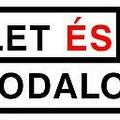64 % of 8.1 million voters casted their ballots in 2010. Joint party list of FIDESZ-KDNP won the elections acquiring 68% of parliamentary mandates by receiving 53% of votes. Oppositional parties had less than one third of mantades receiving 47% of all oppositional votes. Elections were considered by electoral bodies and by Hungarian and foreign public opinion as legitim.
Laws and elections between 1989-2012
National parliamentary elections were held 6 times in 12 electoral rounds according to Act on Elections XXXIV from 1989. The law that was developed during transition period used to support to form new constitutional order: multiparty system, free, fair and transparent elections. All in all Hungarian and foreign public opinion trusted in electoral processes and it’s preparatory activities.
At the same time the new election law had some shortcomings: e.g. deformation of voters’ numbers in some constituencies due to migration, regulation on financing election campaigns, deficiencies of it’s supervision, and collection of proposal coupons. Deficiencies developed gradually and got stronger for those 20 years. Between 1990-2010 parliamentary parties were unable to exercise their responsibilities and stop abuses based on legal loopholes.
Developing a new (substantive) law on elections
The two thirds majority winning the elections in 2010 repealed the election law without any professional or political reasoning. A populist explanation was given only: intention to reduce number of MPs. (Interestingly enough the number of MPs accepted by FIDESZ was suggested by Ferenc Gyurcsány Ferenc originally.) New drafts of bill were submitted by individual MPs. There were no political, social or professional discussions on drafts. Oppositional parties – except for Jobbik – did not take participation neither in parliamentary debates nor in voting processes. The two thirds majority of Hungarian Parliament approved the draft of bill (Act CCIII from 2011).
The Venice Committee carried out an analysis of the Hungarian Election Law and stated that reduction of numbers of MPs, introduction of one round election system, provision of electoral rights to Hungarian citizens living abroad, registration of candidates were considered to be neutral. Electoral rights for national minorities and validation of specific constitutional rights were stated as positive. At the same time methods of developint new drafts of bill, the way of how majority elements were handled in a mixed election system, avoidance of gerrymandering were critisised. It was suggested that theprinciple of 50% should be used to define borders of consituencies and that a full political consensus would have to be reached to set gerrymandering. All in all the Venice Committee stated that several elements of the law contradicted to international standards.
The Hungarian goverment informed Hungarian public about the opinion of the Venice Committee saying that the election law was democratic.
Disregarding the opinion of the Venice Committee 29 elements of Act CCIII from 2011 was ammended by ruling parties several times.
Ammendments were once again have been introduced without political, social or professional discussions.
Preparation and ammendments to the procedurial law on elections
Electoral legislation was continued by developing procedurial laws and regulations.
The procedurial law on elections passed by Hungarian Parliament in the end of 2012 was submitted to the Constitutional Court by the President of the Republic for normative control. The Constitutional Court annuled a part of the Law that would bind the right to vote to a preliminary registration of voters. (Ruling party’s intention with this regulation was to provide voting rights to 4 million voters only out of 8 million voters having voting power. )
Constitutional Court’s decision has prevented introduction of comprehensive restriction of electoral rights. The government accepted this part of the decision of the Constitutional Court.
In addition to that the Constitutional Court also stated that regulations on limitation broadcasting of political advertisments during the election campaign to public service media disproportionately restricts freedom of speech and freedom of press. The same was expressed with regards to the regulation that prohibits publication of results of polls for the last six days of the campaign.
The government rejected to accept the decision of the Constitutional Court as far as the role of public service media was concerned and included these regulations in the Fundamental Law.
The new procedurial Law on elections (Act XXXVI from 2013) was lacking a political, social or professional discussion. The Eötvös Károly Institute, the Hungarian Helsinki Committee, the Political Capital Institute, Society for Liberty rights, Transparency International Hungary proposed new regulations on campaign financing, to control casting ballots by mail, but even so the original draft of bill was slightly ammended only.
At the same time due to an inappropriate preparation of Act XXXVI from 2013 and due to ad hoc political ideas 225 elements of the Act have been ammended.
Opinion of the European Parliament
The relevant Commission and a plenary session of the European Parliament revised the new Hungarian Election Law focusing on Tavares report.
Final text of the decision of the European Parliament stated among the others that the ruling majority of the Hungarian Parliament unilaterally reshaped the election system without willing to reach a consensus.
The European Parliament requested the government to revise the Act together with the Venice Committee and OSCE/ODIRH and to ensure a proportionate representation in the National Electoral Committee.
Request have been disregarded by the Hungarian government.
Other electoral regulations
Ruling parties having a two thirds majority in Parliament continued to follow the same a legislative attitude that had been developed by themselves (individual motions by MPs and a total lack of social, political and professional discussions) and passed a new Act on transparency of electoral campaign finances of MPs (Act LXXXVII. from 2013).
The minister of public administration and justice issued a decree 28/2013. (15 November) that is a regulation on all the details of electoral offices’ tasks, forms to be used during electoral procedures and on how to define summary data of national election results. 41 elements of the decree were ammended based on continouosly changing principles. Most important ammendment corrected a mistake as a result of which national network of electoral IT system would have been missing. The mistake was recognised by the National Election Office on 31st December 2013 only. (7/A. §. Registration Offices).
In addition to that as of today the minister of public administration and justice has not decided what preliminary information and data should be published by electronic media after the elections beginning from evening 6th April. The reason behind is most likely that media audience is to be deprived from the opportunity to follow flow of data and thus it will be possible to adjust some unfavorable for ruling parties data.
The minister of public administration and justic – in accordance with the Act – issued a Ministerial Decree 38/2013. (30 December) on normatives, accounting and reporting rules on finances used by MP candidates during campaign and also on ammendments of some Electoral Ministerial Decrees.
The minister of public administration and justice referring to his competence provided by Law issued Decree 3/2014. (I. 20.) on the date of elections (6 April 2014) and on procedurial deadlines.
The President of the Republic announced the date of elections on 18 January 2014.
One day before the government issued a governmental decree to regulate placement of billboards, advertisments and other means of advertising along public roads and as a result the regulation has become more restrictive. Former regulation has been ammended retrospectivelyand by this it has been declared that previous placements of billboards were illegal. The National Electoral Committee issued specific decisions comdemning democratic opposition. Nevertheless the Supreme Court annuled the sentence of the National Electoral Committee.
6 days after setting the date of elections the General Assembly of the Capital that has a majority of governmental parties issued a Decree 4/2014. (13 February) prohibiting to place billboards and election posters on specific buildings and specific places in public area which have narrowed down further on campaigning possibilities for the opposition. After this some municipalities in Capital City have issued their own decrees and practically have prohibited placement of election posters in all public areas except for specific surfaces specified by Municipalities.
Review of the contents of the new election laws
Various methods have been used since 2011 to analyse the contents of Hungary’s new election laws. Politicians of the governing parties have regularly made declarations praising the laws, albeit without well-founded arguments. Election experts have analysed the regulations based on political preferences or methodologies used in various sciences: history, political science, sociology, geography, mathematics. In fact, some have raised the idea of an interdisciplinary examination method rooted in an “election science”, which is still in an embryonic state. I have chosen to use this last method to analyse the contents of the laws. Balancing between legal positivism and political science, election science reviews the technical contents and socio-political consequences of election systems.
Constitutional principles of suffrage
Scattered across the Fundamental Law, there are several provisions concerning elections: the President of the Republic has the right to announce the date of elections, and general elections must be held once in four years, in April or May. These rules have been taken over from the previous Constitution.
Constitutional principles: suffrage is general and equal, with direct and secret voting. These rules were also adopted verbatim from the previous Constitution. However, the compliance of the detailed provisions of the new substantive law with the constitutional principles needs to be examined.
The principle of general suffrage can be safely applied after the Constitutional Court annulled the registration of Hungarian citizens living in the country. Everybody can participate in the elections, apart from those excluded for natural reasons (e.g. persons of minor age).
The principle of direct and secret elections is worded exactly as in the previous Constitution.
As a novel feature, the Fundamental Law no longer stipulates residence in Hungary for active suffrage. (It is characteristic of the oblique wording used in the Fundamental Law that the notion of ”Hungarian citizens living abroad” is not spelled out at all; interpretation is needed to arrive at the actual contents of certain provisions.
The principle of equal suffrage is gravely infringed concerning both Hungarian residents who currently live abroad, and ethnic Hungarians living beyond the country’s borders (without an address in Hungary).
The number of people in these two categories, Hungarian residents temporarily living abroad and ethnic Hungarians living beyond Hungary’s borders, is put at 500 - 500 thousand each. As these one million Hungarian citizens necessarily include children (whose average ratio is 20%), the result of our calculations is that 10% of the 8 million people entitled to participate in the elections cannot vote in the conventional manner, so a different method must be offered to them. The act on election procedures stipulates no other option but personal voting for Hungarian residents temporarily living abroad; and ethnic Hungarians living beyond Hungary’s borders can vote in a letter. Negative discrimination appears already in the registration period: ethnic Hungarians living beyond Hungary’s borders can apply from September 1, 2013, while Hungarian residents currently living abroad can only apply after the completion of the list of voters in the constituency, i.e. practically after January 18, 2014. This rule puts different burdens on groups of society living under similar circumstances. Voting that takes additional time and costs money drastically decreases the number of registering persons. And some mayor’s offices have limited the suffrage of Hungarians working abroad by taking away their address cards when they reported their intention to move abroad, so that they cannot vote in their individual constituencies. In fact, the National Election Office (NVI) has claimed that an address card was not necessary for voting at Hungary’s embassies abroad.
At the time of the completion of this document, about 25,000 Hungarian residents temporarily living abroad have registered for voting, while 160,000 ethnic Hungarians living beyond Hungary’s borders have applied. These figures clearly prove that the current governing party seeks the votes of ethnic Hungarians living beyond the country’s borders, and does everything it can to keep Hungarians temporarily living and working abroad away from voting. This violates the Fundamental Law.
The equality of suffrage is infringed by the fact that ethnic Hungarians living beyond the country’s borders, who can exercise constitutional political rights but have no obligations as citizens, can compete for the race for mandates together with the votes cast for the national list. According to the international practice, votes by ethnic citizens living abroad are separated from those of people living in the country and are used for the distribution of dedicated mandates. The provision of the substantive law that adds ethnic voters living abroad to the general (two-vote) system but deprives them of one of their votes clearly infringes the Constitution.
As legislators must have realised the awkwardness of the election rules concerning ethnic voters living outside Hungary, they have added a new provision to the previous Constitution which stipulates that the entire regulation of suffrage can be amended by the decision of two thirds of the Members of Parliament present. What a twisted procedure: if legislators cannot find a constitutionally compliant rule for ethnic voters living abroad, then they amend the Constitution for that purpose.
The limitation of the suffrage of ethnic minorities living in Hungary is another issue. The substantive law allows Hungarian citizens (who declare to belong to any of the 13 nationalities listed in an attachment to the act on the rights of ethnic minorities) to register for voting as persons belonging to an ethnic minority. The substantive law adds a third voting option to the two-vote system: registered ethnic minorities can separately vote on a “national list for ethnic minorities”. But these people can no longer vote on a normal national party list. According to the Fundamental Law, the competition for public power is expressed by a competition of political parties, so the election law presents an unsolvable dilemma to ethnic minorities: they either choose not to register as ethnic citizens so that they can vote for a national party list, or they do register as ethnic citizens, but then they are excluded from voting for a national party list.
Depriving ethnic minorities of voting for the nation-wide party list is against the Fundamental Law as it infringes the principle of equal suffrage. The infringement of the Fundamental Law is further exacerbated by the fact that a person who registers as a member of an ethnic minority can only vote for candidates proposed by the nation-wide ethnic self-government elected four years ago, which is not politically unbiased. For example, the nation-wide Gipsy self-governmental elections were won by Lungo Drom, the entity belonging to the parliamentary group of the current governing parties. It is this political entity that is authorised to compile a list that all Gypsy citizens can vote for. This rule and practice constitutes a return to the single-party system of Socialism, when only the Patriotic People’s Front was allowed to propose candidates.
Number of representatives in Parliament
The total number of Members of Parliament is 199, with up to 13 further representatives of ethnic minorities. (This study does not cover the legal status of these ethnic representatives.)
The process of reducing the number of MPs to 199 started back in 2006: the governing majority of that time fought a war of numbers with the opposition, competing before the general public with increasingly bold proposals to decrease the headcount of Parliament. (Seeing the low attendance of Parliament meetings, people expressed their disapproval of politicians and party politics.) Slashing the number of MPs was an important part of all parties’ proposals for the upcoming new election act.
The definition of mandates for Parliament is not arbitrary. According to a well-known scientific method, one way to examine the truthfulness of a statement is to realise it to the extremes. For example, our statement is that “The Parliament that is the most efficient and cheapest for taxpayers to maintain consists of one person.” People vote and the single candidate who gets the most votes will be “the” Member of Parliament. But in history, this solution (similar to Khadhafi’s Lybia) is called a dictatorship. In election systems consisting of individual constituencies or election lists only, the definition of the number of MPs is freer; it is limited by historical traditions or political habits only. But in mixed election systems, the headcount is technically meaningful. Individual constituencies reflect the principle of majority representation, while lists serve the principle of proportional representation. The relative number of MPs elected in the majority versus the proportional system determines the nature of the overall system, i.e. whether it is mostly majority or proportional. In a mixed system, more MPs elected on lists are needed than MPs elected individually. An individual constituency cannot be too big for meaningful contacts between the MP and the local residents. (E.g. more than 100 towns should not belong to the same constituency.)
The headcount defined in Act CCIII of 2011 does not meet the above requirements:
-
there are more disproportionate mandates (from individual constituencies) than seats filled by list-based voting (106:93);
-
there are individual constituencies that are too big for a meaningful contact between the MP and residents (more than 100 settlements).
Defining the geographical boundaries of individual constituencies
On September 18, 1989, the participants of the National Round Table had signed the fundamental political declaration of the political transition period. The subsequent constitutional amendments were proposed by the government of Prime Minister Miklós Németh and its ministries. They also made proposals for the laws that could be passed with the support of two thirds of the MPs present, including the election act. This package of bills was presented to Parliament and approved, after minor amendments, with the support of two thirds of MPs. One of the minor amendments were made to the election act: the number of individual constituencies grew from 156 to 176. Due to that belated change, the geographical boundaries of individual constituencies could not be defined by time the Constitution was promulgated. Thus a subcommittee of the National Round Table was set up and charged with agreeing about the definition of individual constituencies by December 31, 1989. That agreement was reached regarding all 176 individual constituencies by Christmas 1989. The structure was promulgated in a decree by the Council of Ministers.
Between 1990 and 2010, migration caused a significant change (distortion) in the number of residents in the constituencies. Budapest lost 500,000 residents, while Pest county gained 600,000. But the parties in Parliament rejected all initiatives aimed at restoring the equality of suffrage (i.e. at equalising the weight of votes for each mandate). In 2009, the Constitutional Court obliged Parliament to review the number of residents in individual constituencies and pass a law on the new rules. However, the parties in Parliament and the government failed to act (and thus infringed the Constitution), rather than review the structure of constituencies before the general elections in 2010.
The political declarations claiming that the boundaries of individual constituencies in effect since 1990 were defined in a unilateral, biased manner are false and unprofessional.
The geographical areas of the 106 current individual constituencies are defined in an annex to Act CCIII of 2011. The legislators complied with the Constitutional Court’s requirement to pass a law on the definition on the boundaries of constituencies; however, the law is not based on any social, political or professional dialogue. And one year later, the two-thirds parliamentary majority changed the boundaries again. What’s more, the borders of the 30 constituencies traditionally dominated by leftist voters were re-drawn in view of the results of the 2010 elections so that the democratic opposition parties must obtain 300,000 votes more in order to win. (300,000 votes are more than the expected 5% parliamentary threshold.)
Nomination procedure
The rules of nomination in substantive law have been eased considerably compared to those learned by voters over the six past parliamentary elections. The number of residents in individual constituencies has approximately doubled, but 500 proposals are now enough (compared to the previous 750) for a candidate to make it to the ballot. For a nation-wide list, 27 individual candidates had to be presented in Budapest and nine counties.
The collection of candidate proposal slips has also become easier because it is the political parties who received the proposal slips, whereas they used to be mailed to voters directly. The current practice makes it faster for voters to sign the sheets. It is a technical and political error to allow a voter to support the candidates of several parties with a single signature. In addition to the technical easements, the legislators who control two thirds of Parliament encourages candidates with money; every individual candidate received HUF 1 million from the central budget. Thus a party that nominated candidates in all 106 individual constituencies got almost HUF 600 million of taxpayer money. (The parties with fewer candidates received proportionately less money.)
The nomination procedure started with a scandal. The National Election Office (NVI) “made an error” concerning opposition parties in the administration of access to candidate proposal slips; as a result, the governing parties got a time advantage, which constitutes a violation of the principle of equal chances. The Office assumed no responsibility for the error but blamed its own lowest-ranking staff working in the countryside. It became obvious that election officials did not treat all parties equally.
All parties in Parliament collected the 13,500 proposal slips required for a nation-wide list in the first 2-3 days of the three-week period available. But the parties continued the collection, partly with “unofficial” (copied) slips, and partly for small parties. The compilation of lists (with party supporters’ data) has become a general practice.
Due to the technical easements, the financial incentives and the support given to certain small parties, the number of individual candidates and nation-wide lists on the ballots has reached a level unseen since the transition to democracy in 1989. As many as 70 parties have run in the upcoming elections; of them, 44 could present individual candidates, and 18 made a nation-wide list. From the perspective of the governing parties, this change is aimed at fragmenting the votes to be cast for opposition parties. And this goal has mostly been reached; only the democratic opposition has managed to present joint (five-party) individual candidates and a common nation-wide list.
The public calls parties without a political and social history “business parties” or “no-name parties”. These enjoy the implicit support of the current governing parties.
In total, political parties have received about HUF 6 billion of campaign financing from the state budget. On the other hand, the National Election Committee fined those parties HUF 1.8 billion that could not account for the officially issued candidate proposal sheets (because they had been lost, unused etc.) The fines were based on objective liability, with a term of preclusion.
The campaign
The new law on election procedures stipulates rules that are very different from those in effect in the previous 20 years. The campaign period has been shortened considerably, from 72 to 50 days. The ban on campaigning in the last few days before the election date has been abolished. It is no longer forbidden to give food or drink to voters. Parties may not organise the transportation of voters to the booths. These changes, liberal as they may seem, clearly favour the “richest” party (i.e. the governing party) and are detrimental to parties that are less well off. In addition to changing legal regulations, the governing parties have also applied the power of public administration to cause disadvantage to the democratic opposition: several times, state-owned school maintenance authorities have forbidden campaign meetings in school buildings after study hours. On the other hand, candidate proposal slips could be collected before schools, with the involvement of teachers and students. Finally, the entities that exercise the ownership rights of the state or municipalities over old people’s homes forbade the managers of those institutions to organise mobile voting in order to help old people cast their votes.
The two-thirds majority power in Parliament has practically eliminated the campaign limitations that were unfavourable to the governing parties, and has caused disadvantage to opposition parties. The sense of justice of the public was put at rest by replacing the cancelled campaign prohibitions with punitive procedures. Such criminalisation of election procedures may be effective in certain cases (after years of litigation), but it also cancels the retarding force, while justifying immoral political conduct and campaign techniques.
The law limits the time of free political advertisements in public electronic media. Due to the multitude of parties running in the elections, each party gets a few minutes of advertising time only. But the government can advertise its own political activity for an unlimited time. And “entities that do not nominate candidates are now allowed to promote the government’s activities and discredit democratic opposition parties with negative campaign methods.
The government has passed legal regulations to oust parties from commercial media.
In summary, the excess power of the government is exercised in the entire election campaign, which violates the principle of equal chances across the spectrum of political parties. So-called “civil organisations” (funded from taxpayers’ money) have appeared that can apply negative campaign methods against democratic opposition parties. The government secures this unfair practice with legal regulations in order to help the current governing parties.
<span






